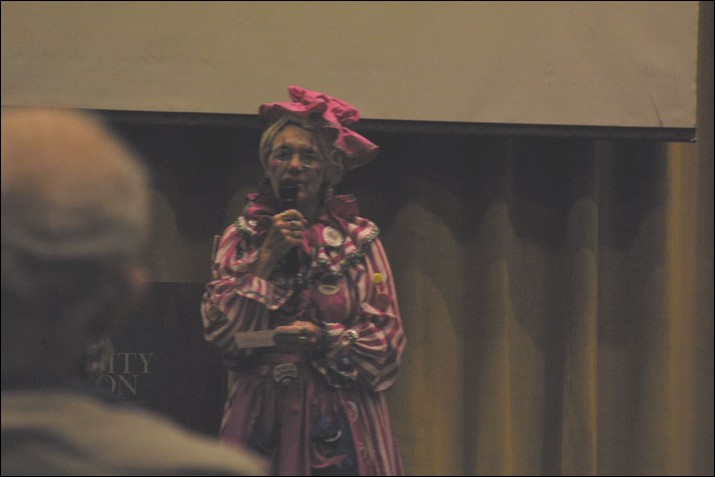Speaker alarmed at lack of student voice for peace
Image: Speaker alarmed at lack of student voice for peace:Marybeth Webster said students are more concerned with money and success than protesting the congressional laws that affect them. Photo by Whiteny Lynn Deatherage/State Hornet:
April 23, 2003
Marybeth Webster was 16 years old when President Truman approved the use of weapons of mass destruction on Japan during World War II.
“When (atom) bombs were dropped on Japan, we felt the future was ours,” she said. “Afterwards, I realized there was no future with such weapons of war.”Webster has since become a peace activist who has traveled throughout the country.
She spoke at Sacramento State about the growing threat of nuclear war and the lack of student involvement in the peace movement at the Renaissance Society’s “Energizing and Encouraging the Peacemakers” event earlier this month.
Webster, who is a retired psychologist and the daughter of a World War I veteran, said it is normal for people to have fears of what these weapons of war could do if they were ever used again.
In other countries, when civil liberties are slowly stripped from the people, students are usually the first to protest against the government, she said. Webster is concerned and disappointed that the majority of American students do not speak out against the infringing laws being passed by Congress.
She said that students seem to focus more on money and success rather than political or civil problems.
“I expect more of students,” Webster said. “It’s their future that’s at stake.”
Webster spent years devoted to a “peace pilgrimage.” She traveled the country in a camper, giving speeches and interviewing various people who were involved in anti-war or anti-nuclear power movements.
She explained that there are several factors that influence people to take part in certain movements whether they involve peace or civil issues. Speakers who hold a position of authority are seen as being very influential, she said.
The media plays a crucial role in motivating people to make a stand for what they believe in, she said.
Webster said that the war stories her father had told her as a child motivated her to be “a psychologist of peace.”
“If we lose our nonviolent forms of communicating, we lose our credibility,” Webster said.
Click here to send private feedback about this article to the State Hornet’s News staff.





























































































































